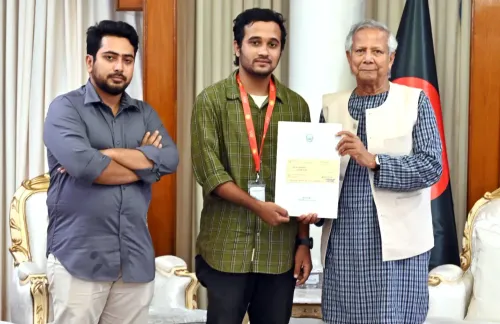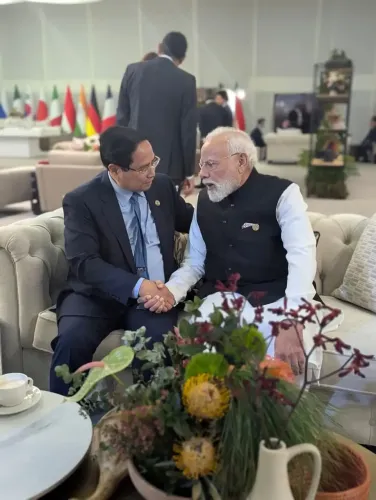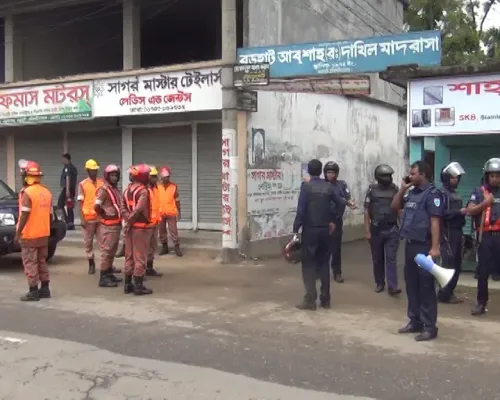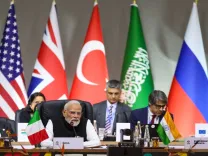Are the Ceasefire Talks in Egypt Really Difficult and Complex?
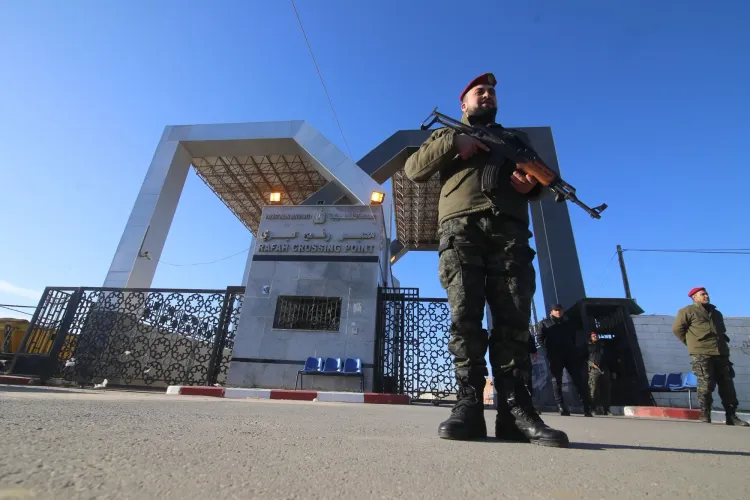
Synopsis
Key Takeaways
- Ceasefire negotiations are ongoing in Egypt, highlighting significant challenges.
- The discussions revolve around hostage releases and military withdrawals.
- Trump's 20-point plan is central to the negotiations.
- Logistical and security issues complicate the process.
- International mediation is crucial for reaching an agreement.
Gaza, Oct 7 (NationPress) The current indirect ceasefire discussions between Hamas and Israel in the Egyptian resort city of Sharm el-Sheikh are being described as difficult and complex, according to sources from Palestine on Tuesday as the second day of talks commenced.
Insiders affiliated with Hamas, speaking on condition of anonymity, revealed that the discussions, facilitated by Egypt and backed by the United States and Qatar, are primarily aimed at establishing the technical mechanisms necessary to initiate the first phase of US President Donald Trump's strategy to conclude the conflict in Gaza.
On September 29, Trump introduced a 20-point framework that Israel agreed to, detailing steps for a phased ceasefire. This includes the liberation of Israeli hostages, the disarmament of Hamas, and the eventual withdrawal of Israeli troops from the Gaza Strip.
According to these sources, the plan requires that Hamas must release all hostages within 72 hours of both parties publicly endorsing the proposal. In exchange, Israel would free hundreds of Palestinian prisoners and halt its military operations in Gaza.
Hamas declared on Friday that it was prepared to release the Israeli hostages it holds in accordance with the plan. Trump welcomed this announcement and urged Israel to stop its bombardment of Gaza immediately.
Nonetheless, Palestinian sources pointed out that Hamas has yet to address several conditions that Israel considers vital for a complete ceasefire, particularly those pertaining to the disarmament of Hamas and the future governance of Gaza, as reported by Xinhua news agency.
They indicated that technical teams are currently analyzing detailed maps provided by the Israeli delegation, indicating the areas from which the Israeli army would withdraw, along with lists of Palestinian prisoners designated for release.
Simultaneously, Hamas has put forward its suggested methods for the transfer of hostages and the remains of deceased captives, while also highlighting logistical and security challenges due to the ongoing Israeli military presence in various parts of Gaza.
Israeli media has reported that US Special Envoy to the Middle East Steve Witkoff and US President Donald Trump's son-in-law Jared Kushner are expected to join the negotiations on Wednesday.
Israeli Minister of Strategic Affairs Ron Dermer may also participate later to finalize potential agreements, according to the reports.
Meanwhile, a representative from the Qatari Foreign Ministry stated in a press conference on Tuesday that the negotiations in Egypt are ongoing and it is too early to discuss any outcomes.
He added that Trump's 20-point plan is filled with complex details and accused Israel of perpetuating the violence through continuous airstrikes on Gaza, emphasizing that the primary challenge now lies in implementation, not consensus.
On Monday, Trump mentioned to reporters that he believed things are progressing well and that Hamas had agreed to very significant terms. He expressed confidence, stating, “We will reach an agreement in Gaza... I'm almost certain of that.”

